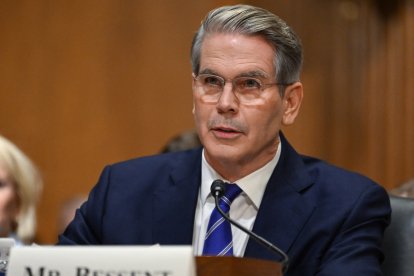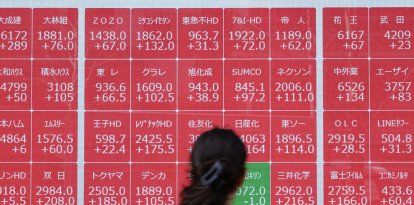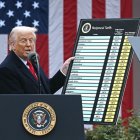"Don't retaliate or there will be escalation": Treasury secretary urges countries not to respond to reciprocal tariffs
Scott Bessent was clear: if countries do not respond to tariffs, current tariffs will be the ceiling.

Scott Bessent in a file image
Treasury Secretary Scott Bessent sternly warned countries that are threatening to respond to President Donald Trump's reciprocal tariffs: "Do not retaliate."
This Wednesday, the president announced his mega-plan of reciprocal tariffs on everyone, directly affecting 180 countries and territories with levies that had a minimum floor of 10%.
To other countries that Trump defined as more commercially hostile, the tariffs were much higher.
For example, China was imposed a tariff of 34%, which was added to a previous tariff of 20%, totaling 54%.
Other notable tariffs were applied to the European Union, which received a tariff of 20%; Japan, with 24%; Taiwan, at 32%; Vietnam, at 46%; India, at 26%; and South Korea, at 25%.
"My advice to every country right now is do not retaliate. Sit back, take it in, and let's see how it goes. Because if you retaliate, there will be escalation," Bessent said on Special Report. "If you don't retaliate, this is the high-water mark."
Some of the countries that did not receive new tariffs were Mexico, Canada, Russia and Belarus. In the case of the latter two, Bessent explained that they could not be sanctioned because the US does not directly trade with these countries.
In the case of Mexico and Canada, neighboring countries, the Trump Administration could have chosen not to strain relations with its closest trade allies, which are supporting the US president's immigration and security agenda.
Many world leaders, including Trump allies such as Giorgia Meloni of Italy, challenged Trump's reciprocal tariffs, warning the president that Americans will bear the brunt of the measure.
RECOMMENDATION























